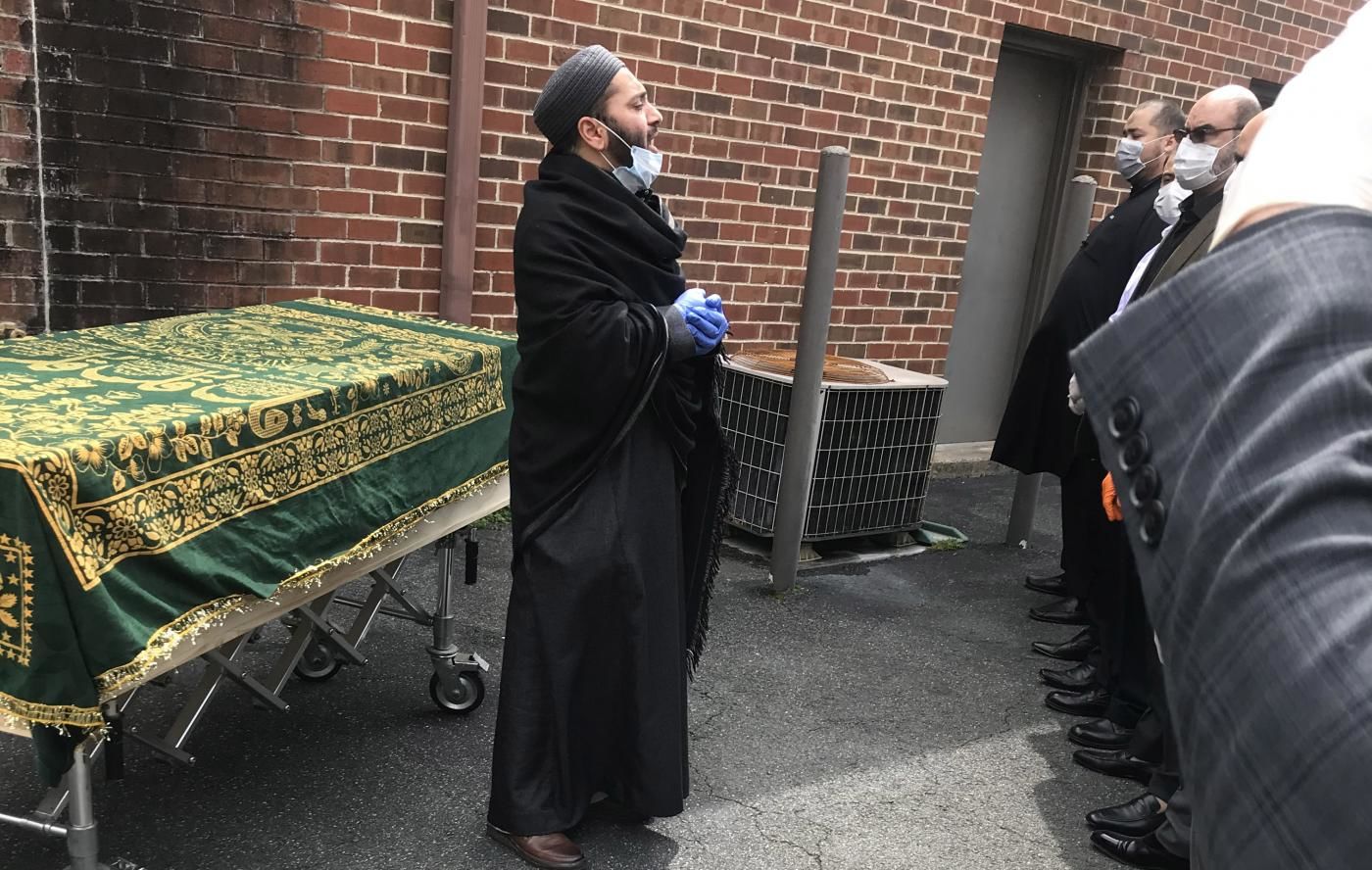
The Middle East Eye explains that “in Islam, death is considered a rallying cry to the whole community. Attendance at funerals is considered a collective obligation (fard qifayah) that must be carried out by a sufficient number of people. The faithful are expected to head to mosques to perform funeral prayers (salat-ul janazah) and to the deceased person’s home to offer their condolences (‘Azza).”
But due to the unfortunate deaths from the coronavirus pandemic, leading Muslim scholars and imams in the United States have issued new guidance on how to deliver funeral rites (according to the Middle East Eye):
— When a Muslim person passes away, they are cleansed with water in a ritual called ghusl. A communal prayer is then performed before they are buried. The deceased is supposed to be buried within 24 hours, preferably without a casket and wrapped in a shroud known as a kaffan.
— This Islamic ritual is in conflict with a recent advisory from the Centers for Disease Control and Prevention (CDC) which states that the body of someone who has died from the coronavirus should not be touched, due to concerns the illness could spread.
— Since some states and areas in the country have stopped performing the ritual bath, Muslims have turned to another Islamic method, tayammum, which consists of cleaning the dead body with either sand or dust.
— The Fiqh Council of North America has also issued a fatwa detailing its advice on how Muslims should deal with burials. The council has advised the community to follow all routine procedures in burying the dead, but if they encounter problems due to local government restrictions, they can perform alternatives.
“The default [position] is that the deceased should still be given full ghusl if PPE procedures are followed,” said Yasir Qadhi, the Dean of Academic Affairs at the Al-Maghrib Institute in Texas and a member of the council.
“In case even this cannot be done and there is a genuine danger or reasonable doubt regarding harming the health of those around the corpse, tayammum can be done, in which case the one in charge of the corpse may, even while wearing gloves, wipe the face and hands of the deceased after touching some sandy surface.”
— The US federal government has also advised that any public gatherings not exceed 10 people, which has forced many Muslim Americans to scale back funeral services.
— The Fiqh Council of North America has permitted funerals to be broadcast online, allowing those who are not able to attend to view it, as well as allowing for prayers in absentia to be carried out if the deceased is in another country.



